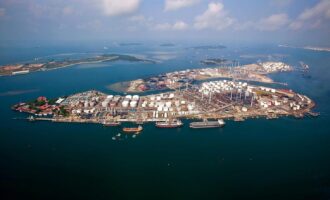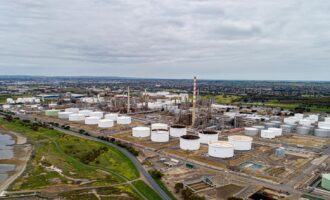
BASF accelerates implementation of CO2 reduction targets
BASF has created a new project organization called Net Zero Accelerator to steer cross-company activities in the areas of low-CO2 technologies, circular economy and renewable energies. The formation of this unit will help accelerate the implementation of BASF’s CO2 reduction target.
The German chemical company’s target is to reduce its CO2 emissions by 25% by 2030, compared with 2018, and become climate neutral by 2050.
The new project organization, based in Ludwigshafen, Germany, will start on January 1, 2022, initially with around 80 employees.
“With the new project organization, we are continuing to accelerate and create more powerful structures within BASF to achieve our ambitious goals,” said Dr. Martin Brudermüller, chairman of the Board of Executive Directors of BASF SE. “This further step demonstrates the determination to drive forward our transformation to a climate-neutral company.”
The Net Zero Accelerator unit will be led by Dr. Lars Kissau, 48, as president, reporting directly to Brudermüller. Under Kissau’s leadership, existing and new projects to achieve the CO2 reduction targets will be launched and driven forward at corporate level worldwide in the future. The aim is to move the projects into the implementation phase over the next few years. By pooling expertise around renewable energies, alternative raw materials and CO2 reduction technologies, BASF will increase the speed of implementation. In parallel, the operating divisions will continue to work on divisional projects to implement BASF’s ambitious CO2 reduction targets.
Ongoing cross-company projects managed by the new unit include BASF’s activities in the field of circular economy such as ChemCyclingTM or CO2-free technologies such as methane pyrolysis. Renewable energies are another field of activity. BASF has initiated various projects in this area and signed specific agreements in recent months. Examples include a contract with Vattenfall to acquire a 49.5% stake in the Hollandse Kust Zuid wind farm with a total capacity of 1.5 gigawatts and a 25- year electricity supply contract to purchase 186 megawatts of capacity from Ørsted’s planned Borkum Riffgrund 3 offshore wind farm in the German North Sea.









